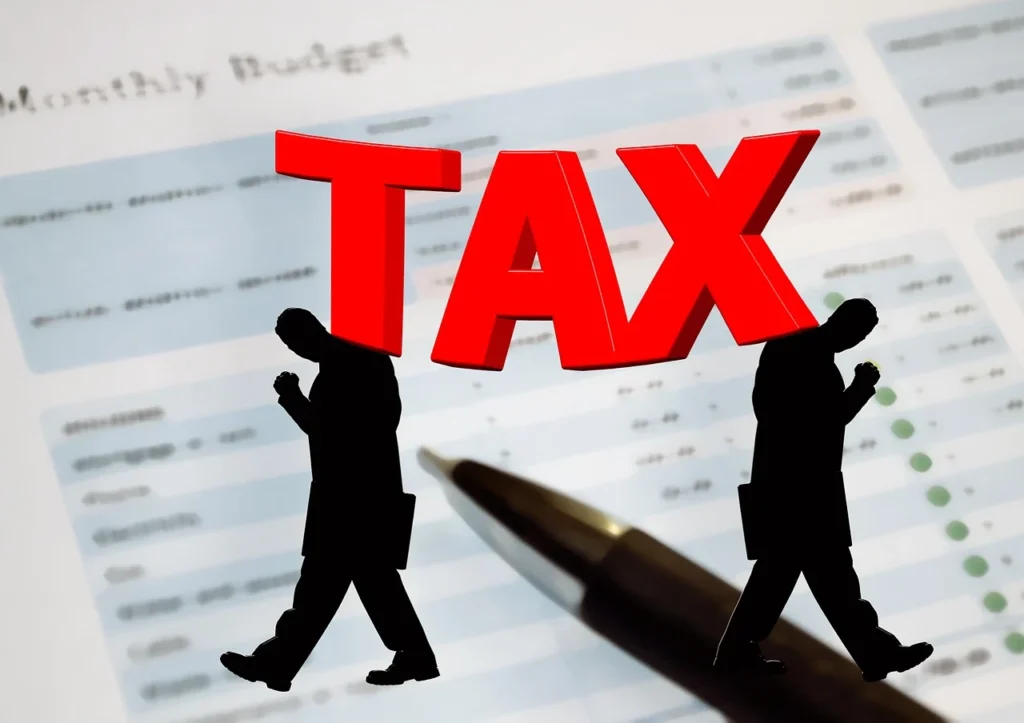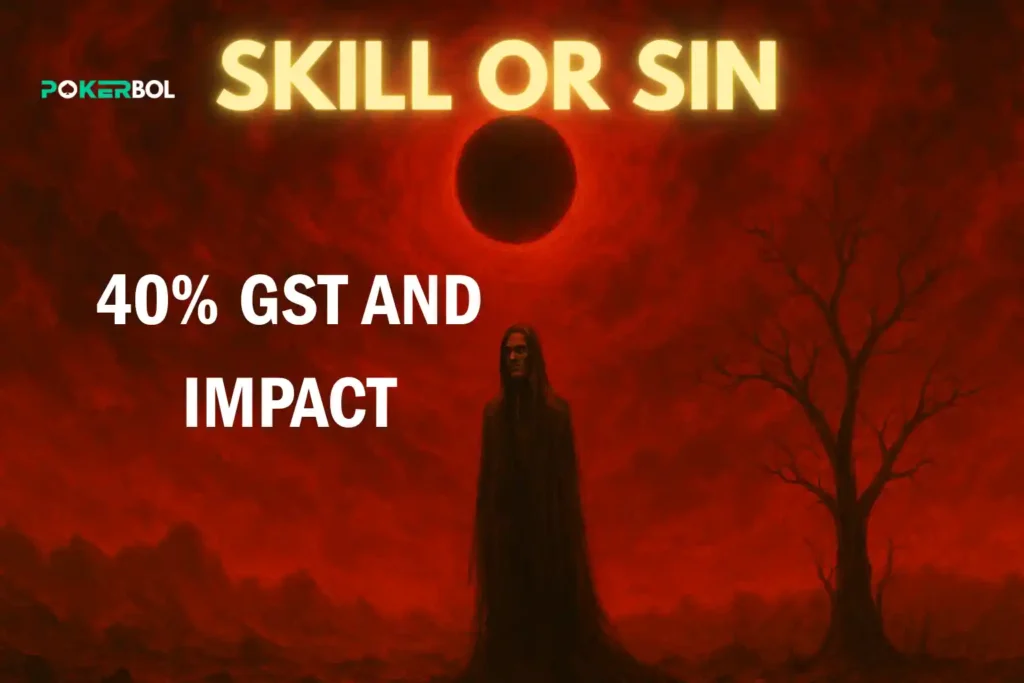The Promise of GST Reform—and a Hidden Threat
The Indian government is pitching its next-generation GST reform as a “double Diwali” for citizens and businesses. The new framework aims to simplify taxation into just two slabs: 5% for essentials and 18% for most goods.
However, buried in this reform package is a controversial 40% slab for “sin and luxury” goods. Reports suggest that the entire online real-money gaming (RMG) sector could be grouped here—alongside alcohol, tobacco, and gutkha.
While the proposal of the Gaming Tax is yet to be officially confirmed, it has already rattled the market. Shares of gaming-linked companies Delta Corp and Nazara Technologies dipped nearly 1.8%, signaling deep investor unease. For an industry still recovering from the 28% GST shock on deposits last year, this looming move could prove catastrophic.

The Central Contradiction: Sin or Skill?
The decision to classify online gaming as a “sin activity” raises glaring contradictions. For decades, the Supreme Court of India has consistently recognized games like Rummy and Poker as skill-based activities, not gambling. Fantasy Sports, too, has been upheld as a legitimate, skill-driven business.
Placing intellectual skill games in the same category as cigarettes undermines this long-standing legal distinction. Industry experts argue that such a classification disregards judicial precedent and ignores the skill, technology, and innovation driving this sector.
The Math of Survival Of Gaming Tax: Deposits vs. GGR
The real danger lies not just in the rate but in what the 40% tax is applied to. Two scenarios emerge:
- 40% on Player Deposits (Full Face Value):
This would be an extinction-level event. Platforms only earn 5–10% Gross Gaming Revenue (GGR) from deposits. Taxing the full deposit pool translates to an effective tax burden exceeding 400% of actual income, forcing startups to shut down and pushing players to illegal offshore sites. - 40% on Gross Gaming Revenue (GGR):
This is the global norm, where only the platform’s commission is taxed. However, even here, 40% would be among the world’s highest rates, creating a suffocating environment for sustainable operations.
For poker specifically, already crushed under the 28% levy on deposits, the proposed 40% rate would dismantle the ecosystem. Higher rake charges would make games mathematically unwinnable, driving professionals and recreational players alike to abandon domestic platforms.
Also Read: Poker Tax Law Sparks Unlikely Alliance Between Political Rivals

The Industry’s Plea for Rationality
The industry has been vocal about the devastating consequences of this proposal. Anuraag Saxena, CEO of the E-Gaming Federation, warned:
“Raising GST on real money gaming to 40% would fundamentally undermine a growing digital sector that has created jobs, attracted investment, and promoted responsible play. Equating gaming with tobacco or gutkha is a fundamental misunderstanding of our industry.”
Analysts argue that this move would cripple startups, spark mass layoffs, and trigger a flight of capital and talent from India’s digital economy.
All Eyes on the Supreme Court On Gaming Tax
Adding to the uncertainty is the Supreme Court’s pending judgment in the Gameskraft batch of cases. After nearly 90 hours of hearings, the Court will soon decide on:
- The skill vs. chance distinction.
- The validity of retrospective tax claims is worth ₹1.50 lakh crore.
- The correct GST valuation method (deposits vs. GGR).
- The extent of state powers to regulate or ban gaming.
A favorable verdict could shield the industry from a devastating tax structure. An unfavorable one could embolden authorities to enforce the harshest version of the 40% slab.
A Sector at Crossroads
India’s online gaming industry, valued at over ₹20,000 crore and employing thousands, now faces an existential crisis. What was once hailed as a sunrise digital sector risks being driven underground.
As policymakers balance tax revenue ambitions with the need to foster digital innovation, the industry stands at a crossroads. The coming months will determine whether India celebrates a “double Diwali” of simplified taxes—or mourns the collapse of a sector that had the potential to become a global leader.
FAQs
Q1: What is the proposed GST reform in India?
A1: The government plans to restructure GST into two main slabs—5% and 18%—alongside a 40% “sin and luxury” category that may include online gaming.
Q2: Why is the 40% GST on online gaming controversial?
A2: It equates skill-based games like Poker and Fantasy Sports with harmful goods like tobacco, contradicting Supreme Court rulings and threatening the industry’s survival.
Q3: What is the difference between taxing deposits vs. GGR?
A3: Taxing deposits taxes the full pool of player money (unsustainable), while taxing GGR taxes only platform income (globally accepted but still burdensome at 40%).
Q4: What role does the Supreme Court play in this issue?
A4: The Court’s pending judgment in the Gameskraft case will determine the legality of tax methods, retrospective demands, and whether gaming is skill or chance.

